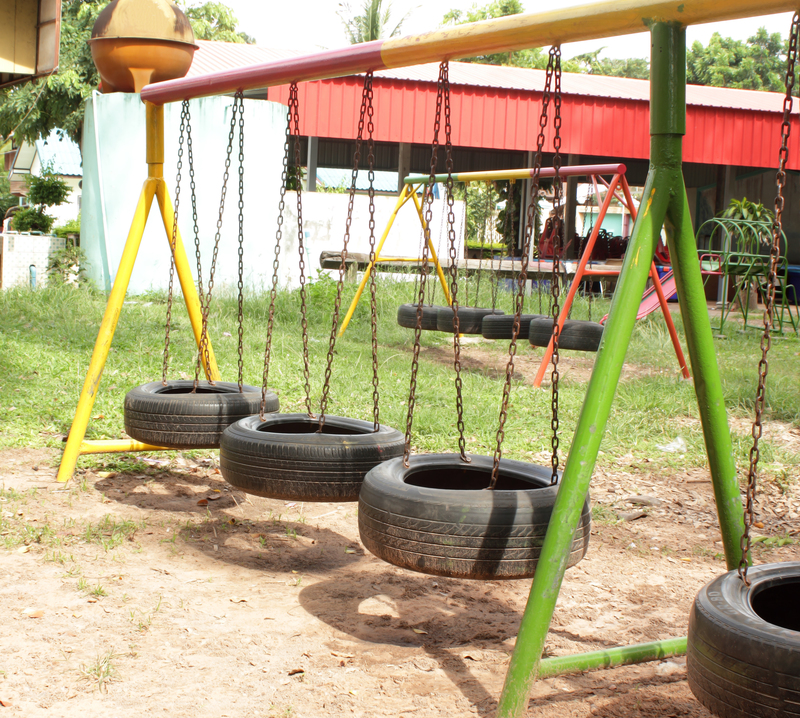How to Find Local Options for Disposing of Pots and Pans
When your kitchen cookware reaches the end of its life, it's essential to dispose of it responsibly. Figuring out the best way to get rid of old pots and pans locally isn't always straightforward. Tossing them in the garbage can be harmful to the environment and, in some places, isn't even allowed! If you're looking for eco-friendly, practical, and resourceful local methods, you're in the right place. This comprehensive guide covers all you need to know about finding local options for disposing of pots and pans.

Understanding Pot and Pan Disposal: Why Is It Important?
Disposal of pots and pans goes beyond clearing out clutter from your kitchen. Improperly disposing of metal cookware can lead to unnecessary landfill waste and wasted resources. Pots and pans are primarily made of metals such as aluminum, stainless steel, and sometimes copper or nonstick coatings - materials that can be recycled or repurposed.
Knowing where to take old pots and pans locally can make a significant difference in your impact on the environment. When you dispose of pots and pans properly, you're helping to reduce landfill waste, save energy, and allow materials to be reused in new products.
What Types of Pots and Pans Can You Recycle or Donate?
- Stainless Steel Pots and Pans: Durable, rust-resistant, and highly recyclable.
- Aluminum Cookware: Often recyclable at local facilities, whether coated or not.
- Copper Pots: Valued at scrap yards; ensure they're not lined with dangerous materials.
- Nonstick Pans: Can be trickier to recycle, but some programs accept them if the coating is safe.
- Cast Iron Cookware: Recyclable, and highly sought after for restoration or upcycling.
- Ceramic-Coated Pans: Often not recyclable in traditional facilities due to their coatings.
Always check the condition of your kitchen items. If they're still functional, donation is preferable over recycling, extending their usability and keeping them out of landfills.
Step-by-Step Guide: How to Find Local Options for Disposing of Pots and Pans
1. Check with Your Municipal Recycling Program
Start by researching whether your local recycling service accepts pots and pans. Municipal rules often vary depending on:
- The type of metal or material (aluminum, stainless steel, nonstick, etc.)
- Whether the handles or coatings must be removed
- The size or weight of the item
You can typically visit your city or town's official website or call their public works department to ask about recycling pots and pans locally. Larger scrapyards or recycling events might accept them even if curbside pickup doesn't.
2. Drop Off at Local Scrap Metal Yards
Scrap metal yards are often the best places for recycling old cookware that cannot be reused. Many pots and pans, especially those made from aluminum, stainless steel, or copper, have value as scrap.
- Find nearby scrap yards using online directories, such as Yelp or Google Maps, and call ahead to confirm if they accept kitchenware.
- If the pans have plastic or wooden handles, you might need to remove these parts as some scrap yards require metal-only items.
Scrap yards are especially valuable for disposing of broken pots and pans locally that are not suitable for reuse.
3. Consider Donation: Give Your Pots and Pans a Second Life
If your pots and pans are still usable, donation is a sustainable and generous option. There are numerous local organizations, charities, and thrift stores that accept gently used cookware.
- Goodwill, Salvation Army, and Habitat for Humanity ReStore: These organizations often accept kitchen goods, including pots and pans, in working condition.
- Local Food Pantries or Shelters: Nonprofits that cook for those in need may welcome cookware donations.
- College or Student Housing Groups: University students and newly independent young adults often need affordable kitchen supplies.
Always clean your cookware thoroughly before donating and call ahead to make sure the organization is accepting such items at this time.
4. Host or Join a Community Swap Event
Neighborhood swap events are excellent ways to find new homes for your pots and pans locally. Search for community-centered groups on Facebook, Nextdoor, or Meetup that organize "freecycle" or swap events.
- Post pictures and details about your items in community groups to find interested takers.
- Some local recycling centers or municipalities organize annual or seasonal swaps specifically for household goods, including kitchenware.
5. Upcycling and Creative Reuse
If conventional recycling or donation isn't viable, consider upcycling your old pots and pans into something new and useful.
- Turn pans into planters for your garden or window sills.
- Repurpose lids as wall art or message boards.
- Use pots as storage containers for craft supplies, office tools, or small toys.
Check local workshops, makerspaces, or art studios; they may be interested in taking your old cookware for creative projects.
6. Mail-Back and Brand Recycling Programs
Some major cookware brands and retailers have take-back or recycling programs. For instance:
- Tefal, Calphalon, and other companies have been reputed to offer programs for returning and recycling old pans -- check their websites for current details.
- Some retailers (like Target or Crate & Barrel) organize periodic kitchenware recycling events.
- Companies like TerraCycle offer specialized recycling boxes that can be shipped back after filling up with kitchen items, including pots and pans.
While these options might not always be "local" in the sense of being nearby, check with retail stores in your city; some partner with such programs and act as convenient drop-off points.
How to Search Online for Local Pot and Pan Disposal Options
Optimizing your online search ensures you find the most relevant local recycling and donation options for pots and pans. Here's how to do it effectively:
- Use Google Maps to search "pot and pan recycling near me" or "kitchenware donation [your city]."
- Check neighborhood forums and social media groups--locals often share tips or may offer to take items off your hands.
- Visit your city or county government's official waste disposal and recycling web pages.
- Consult the Earth911 Recycling Search tool by entering "pots and pans" and your zip code.
Always verify recent updates to disposal guidelines and hours of operation before visiting a facility or drop-off center.
Special Considerations: Nonstick and Specialty Cookware
Some pots and pans have nonstick coatings made of PTFE (like Teflon) or ceramic materials, which can be problematic for recycling due to chemical concerns.
- Many municipal recycling programs do not accept nonstick cookware because coatings can contaminate the recycling stream.
- Inquire at local scrap metal yards or specialty recycling events if they take nonstick pans, or if the nonstick surfaces must be removed first.
- Donation is sometimes allowed if the nonstick surface is in good condition and suitable for use.
What about Broken or Damaged Pots and Pans?
Heavily damaged cookware that can't be reused should be recycled, not thrown in the landfill. Scrap metal yards accept bent, broken, or handleless metal pots and pans.
Summary Table: Local Disposal Options for Pots and Pans
| Disposal Option | Suitable For | Local Resources |
|---|---|---|
| Municipal Recycling | Metal pots, pans (with/without handles) | City waste departments, curbside pickup |
| Scrap Metal Yards | Metal cookware (damaged or whole) | Local scrapyards, recycling centers |
| Donation | Usable, clean pots and pans | Thrift stores, shelters, food banks, churches |
| Upcycling/Art Projects | Any type, especially interesting or vintage cookware | Makerspaces, schools, local artisans |
| Brand Take-Back | Specific brands, any condition | Retailers, manufacturer programs |

Responsible Kitchenware Disposal Tips
- Avoid putting cookware in your regular trash. Most metal items don't biodegrade and can be recycled.
- Remove plastic or wood handles before recycling to prevent contamination.
- Clean items thoroughly before donation to prevent rejection by charities.
- Label or clearly separate nonstick or ceramic-coated cookware as some facilities treat them differently.
- Ask questions! When in doubt, call your local recycling center to confirm they'll accept your pots and pans.
Frequently Asked Questions about Disposing of Pots and Pans Locally
Can I put pots and pans in the recycling bin?
Not always. Many curbside recycling programs do not accept large metal items, but local recycling centers and scrap yards typically do. Always check your city's guidelines.
What should I do with nonstick pans?
If the nonstick surface is severely damaged, take it to a scrap yard, if they accept them, or find a specialty recycling event. If it's still usable, consider donating to a local thrift store or charity.
Can broken pots and pans be recycled?
Yes, most broken metal cookware is acceptable at scrap metal recycling facilities, even if the handles or lids are missing.
Are there any options to make money from old pots and pans?
Scrap metal yards sometimes pay by weight for metals like aluminum, steel, or copper -- so recycling old pots and pans can be profitable in some cases.
Is donating better than recycling?
When possible, donating is often preferable to recycling. It extends the usable life of the item and benefits your community.
Conclusion: Make a Positive Impact with Local Pot and Pan Disposal
Finding local options for pot and pan disposal is easier than you think, and it's a simple way to contribute to a cleaner environment and a stronger community. Whether you're recycling kitchenware, donating to those in need, or upcycling pots and pans into something new, your actions matter.
Before tossing your old cookware in the trash, consider all the options your area has to offer. With a little research and effort, you can responsibly dispose of pots and pans locally--creating less waste and a brighter future!